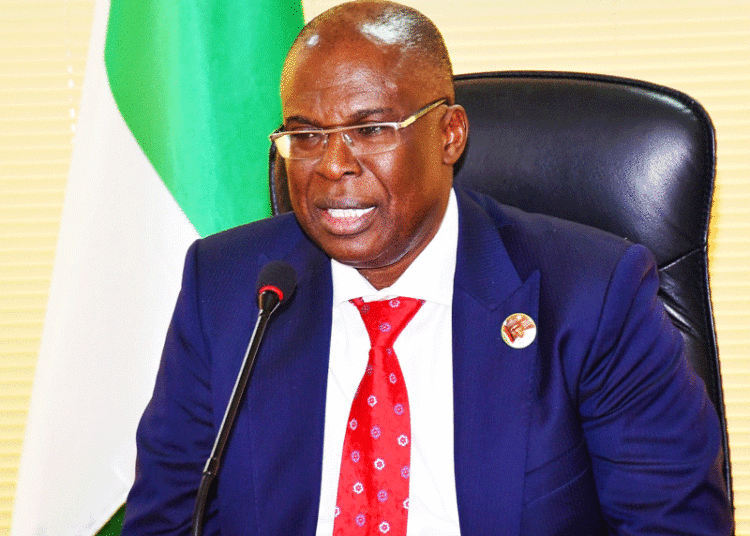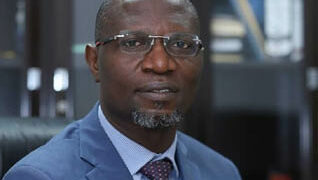The year 2022 came with much enthusiasm as Nigeria innovates towards breaking even in the oil and gas industry.
This was bolstered with the declaration of “The Decade of Gas”, an initiative designed to ensure Nigeria can take advantage of the global energy transition. The launch comes just as the government is pushing through some major reforms for the sector – notably, its long-awaited Petroleum Industry Bill, PIB, that could see the biggest transformation of Nigeria’s energy industry in decades.
Oil contributes around half of the government’s revenue and most of its foreign exchange receipts, making Nigeria one of the countries most susceptible to the global transition to cleaner fuels.
But as Buhari’s latest initiative makes clear, many now believe that Nigeria’s largely untapped, natural gas resources could provide the means for the country to fund its way through global energy transition.
One of the country’s major efforts here is the Ajaokuta–Kaduna–Kano Natural Gas Pipeline set for completion this 2023.
Spearheaded by the government and funded by China’s Belt and Road Initiative, the government hopes it will connect the country’s gas supply to other planned trans-regional and intercontinental pipelines , such as the Trans-Saharan Gas Pipeline, in order to open up access to Europe.
Lack of infrastructure has historically hampered the Nigerian energy sector, and represents a crucial reason why its gas reserves have been untapped for so long. This pipeline project could fundamentally alter the calculus, and also help the country meet its growing electricity needs in a cleaner, more sustainable manner.
It is expected that Nigeria should fund gas infrastructure development with yearly $2 billion spend.
Counting Loses In The Upstream
Nigeria’s oil production averaged 1.34 million barrels per day in the first 10 months of 2022 against the 2022 Budget benchmark of 1.88 million barrels per day, costing the nation about 161.58 million barrels in lost production.
At an average crude oil price of $95 per barrel it means the country lost about $15.35 billion in estimated earnings.
The Nigerian Upstream Petroleum Regulatory Commission (NUPRC), data showed that total oil production for the first 10 months was 409.94 million barrels against the budget provision of 571.5 million barrels.
The data also showed that oil production fell in the first 10 months of 2022 by 21.37 per cent when compared to 497.55 million barrels of oil produced over a similar period in 2021.
Also, the Nigerian Bureau of Statistics (NBC) has said foreign investment inflows into Nigeria’s oil and gas sector have dropped by 97 per cent.
NBS in its data on Nigerian Capital Importation Report for the second quarter of 2022 revealed that inflows of foreign investments into the oil and gas industry in the country, which stood at $68.6m (N30bn) in the first half of 2021, had crashed to $2.5 million (N1billion) in the first half of 2022, indicating a 97 per cent drop.
Going by the expert’s view, it means that if oil and gas companies decide to shut down their economies against fossil fuels, the whole world would go into a spin. It equally suggest that Africa should see opportunity in renewable energy instead of seeing it as a loss.
Upstream Development
Despite government’s ambitious oil and gas development strategies, Nigeria lost its crown as Africa’s largest crude producer as Angola surpassed the country for the first time in more than five years.
Angola’s average daily output in August of 1.17 million barrels was more than Nigeria’s at 1.13 million barrels.
The last time that happened was in April 2017 when both nations were pumping about 500,000 barrels a day more.
But nevertheless, authorities were undaunted as key development initiatives moved ahead to restore the lost glory.
One of the key industry turnarounds was the transformation of the Nigerian National Petroleum Company Ltd (NNPC) into an entity that would be regulated in line with the provisions of the Companies and Allied Matters Act (CAMA) which was expected to provide an easier path to unlocking private capital for the state-owned firm that would help finance not only its projects but also bigger national ventures.
With the official unveiling the transition of the NNPC into a limited liability company was aimed at expanding the corporation’s ability to enter into new deals, raise capital from financial institutions to fund projects
and tackle funding shortfalls with joint ventures.
The group managing director of the NNPC Ltd, Mr Mele Kyari, explained that the NNPC’s transformation into a CAMA company followed the implementation of the Petroleum Industry Act.
The Corporate Affairs Commission had on September 21 last year completed the incorporation of the NNPC Ltd in accordance with the provisions of the Petroleum Industry Act 2021.
Dealing With Crude Theft Jinx
It is stated that an average of 437,000 barrels of oil is stolen on daily basis by oil thieves in Nigeria.
Data shared by the NNPCL, disclosed that between January and July, the country lost an average of 437,000 barrels of oil a day to criminal entities and individuals who illicitly tap pipelines onshore and offshore in the Niger Delta region.
Group chief executive of NNPCL, Mele Kyari, had blamed a section of Nigerian society for complicity that has led to the loss of thousands of dollars in the oil theft, undermining the country’s oil production.
Nigeria recorded lower production in the first seven months of the year. In January the production stood at 1.4 million barrels per day but as of July, the production went lower to 1.1 million barrels per day.
Pipeline fires are commonplace in Nigeria, in part because of poor maintenance but also because of third party infractions who vandalize pipelines to siphon off petrol and sell it on the black market.
Crude oil is tapped from a web of pipelines owned by major oil companies and refined into products in makeshift tanks.
According to industry sources, Nigeria loses around 200,000 barrels of crude to oil thieves, vandals and illegal refining operators daily.
Government Ekpemupolo, popularly known as Tompolo, after winning oil Infrastructure protection contract also discovered an illegal crude oil pipeline with the capacity to deliver 400,000 barrels per day.
The discovery was made via Tantita Security Services Nigeria Limited, a company owned by the Niger Delta ex-militant which was contracted for oil pipeline surveillance.
The company reportedly discovered more massive illegal crude oil pipelines attached to Trans Forcados Export Trunkline.
The latest discovery comes a few days after an illegal four-kilometre crude oil pipeline belonging to Shell Petroleum Development Company (SPDC) was exposed.
Fuel Scarcity
The decision by the federal government to suspend implementation of the petrol subsidy withdrawal resulted in chaotic shortages of the product across the country.
The Minister of Finance, Budget and National Planning, Zainab Ahmed, had said that the federal government will do away with petroleum subsidy by June 2023.
Petrol subsidy reportedly gulped N2.565tn between January and August 2022.
Also, in the Medium-Term Expenditure Framework, the federal government proposed to spend N3.3trillion on fuel subsidy between January and June 2023.
She, however, said that the challenge was how to go about removing the subsidy.
“First, we have to engage. We have already engaged with the states and the public before it was approved as part of the medium-term plan.
As marketers could no longer access the product they hinted of a possible pump price hike for Premium Motor Spirit, PMS, also called petrol.
President of Petroleum Products Retail Outlets Owners Association of Nigeria, PETROAN, Dr. Prince Billy Harry, gave the warning in a chat with LEADERSHIP.
Harry said system inefficiency and scarcity of foreign exchange is about to create dysfunctional market operations that would bring about price distortion beyond the control of marketers.
Harry is not alone in this uncertainty as the National President of the Independent Petroleum Marketers Association of Nigeria, IPMAN, Elder Chinedu Okoronkwo sounded similar warning.
Both of them spoke to our Correspondent on phone while blaming independent depot operators as creating precarious market situation.
According to Okoronkwo, the depot operators unilaterally hiked ex-depot price of products in particular petrol.
“We independent marketers source products from these depots and they have refused to sell at regulated government price. What you observe in Lagos is simply a situation where marketers pay higher and then adjust their pump to recover cost and retain customers.
“They are not concerned about profit but to sustain their businesses until government takes a firm stand on deregulating the market “ said Okoronkwo.
Harry, on his part said with exchange rate above N800 a dollar, the public should expect another round of hike in pump price of petrol except exchange rate is stabilised.
According to him, landing cost of petrol to outlets is within the region of N184 to N189 per liter.
“We went round Abuja yesterday and we found out that a liter of petrol in the black market sells for between N350 to N400 a liter. On the other hand our retail outlets sell between N190 to N200 a liter depending on source of procurement.
“We monitor the situation in Calabar, Aba and Port Harcourt as well as Lagos. What we are doing presently is to ensure our members maintain reasonable price band. No one appear to be challenging the system but I want to warn that we may experience another round of price hike as we approach the festive season “ he said.
He warned that deregulation at this point will escalate the situation since the country relies on importation.
Chairman, Depot and Petroleum Products Marketers Association of Nigeria (DAPPMAN), Dame Winifred Akpani, has blamed acute shortage of foreign exchange (forex) in the official market as pushing the naira to N860 against a Dollar.
This according to her has broadly altered dynamics for the importation, distribution and marketing of petrol.
Akpani, who disclosed this during a press briefing by its Governing Council in Lagos, called on the government to give petroleum marketers access to foreign exchange at the official Central Bank of Nigeria (CBN) rate to enhance the supply and distribution of petrol across the nation this Yuletide season.
According to her, shortage of Forex coupled with several unauthorised levies, bad roads are among the factors making fuel importation and distribution burdensome for members.
Akpani, said the burden of sourcing forex through the paralell market for transactions domiciled in Nigeria had left petroleum marketers in “dire straits”.
“Accessing USD (dollars) for our operations has been an insurmountable hurdle for petroleum marketers. The difference between CBN exchange rate and the Parallel market exchange rate continues to get wider by the day,” she said.
Incessant Power Sector Grid Collapse
Nigeria’s electricity sector lost a whopping N15.4 billion in the second quarter of 2022 following the contraction of the sector by 11.48 per cent year-on-year in real terms, data from the National Bureau of Statistics has revealed.
According to the latest GDP report for the second quarter of 2022 released by the (NBS), this is consistent with the 11.2 per cent contraction recorded in the first quarter of 2022.
In other words, the sector saw a loss of N15.4 billion from the N134.19 billion recorded in the corresponding period of 2021.
The country has witnessed several cases of national grid collapse which has led to nationwide blackouts in recent times. This year, the country has reported over 7 cases of national grid collapses, although it is believed the figures could be higher.
In 2022 alone, the national power grid collapsed seven times, with the most recent coming on the 20th of July. The national grid failures inevitably led to power cuts, which meant fewer people purchased electricity.
Similarly, the first half of the year was ravaged by high gas prices, which was cited as one of the major factors causing the grid collapses. Gas prices following the Russian-Ukraine war surged significantly across the country, as a result of a drop in supply.
The grid collapse is normally due to low gas supply, poor management, sabotage, and vandalism, among other reasons.
The sector recorded impressive growth in the previous year, following a hike in electricity tariff rate. However, multiple grid disruptions and global energy crisis dampened productivity in the sector.
The Electricity, Gas, Steam and Air conditioning Supply sector contributed 1.39 per cent to the nominal GDP in the second quarter of 2022, a 0.33 per cent-point decrease from the corresponding period in 2021. However, this was an improvement from the previous quarter’s 0.38 per cent.
Energy Transition
In August,2022, Nigeria joined global initiative towards the search for clean energy alternative.
The Federal Government in this regard launched an ambitious plan, seeking to raise $10 billion for Nigeria’s energy transition.
Vice President Yemi Osinbajo, said the plan was a decisive action, which the nation cannot afford to delay.
He also said Africa’s increasing energy gaps require collaboration to take ownership of the continent’s transition pathways and the action should be decisive and urgent.
He stated: “For Africa, the problem of energy poverty is as important as our climate ambitions. Energy use is crucial for almost every conceivable aspect of development. Wealth, health, nutrition, water, infrastructure, education, and life expectancy are significantly related to the consumption of energy per capita.”
In a statement by Laolu Akande, Senior Special Assistant to the President on Media & Publicity, Office of the Vice President, Osinbajo also highlighted the significant scale of resources required to attain both development and climate ambitions. Nigeria would need to spend $410 billion above business-as-usual spending to deliver our Transition Plan by 2060, which translates to about $10 billion per year.
“The average $3billion per year investments in renewable energy recorded for the whole of Africa between 2000 and 2020 will certainly not suffice.”
At the virtual event, Mr. Shubham Chaudhuri, Nigeria country director for World Bank said the bank plans “to commit over USD 1.5 billion towards the Energy Transition Plan on renewable energy, on power sector reforms, on clean cooking, and wherever opportunities arise.”
The federal government would optimise the country’s abundant gas resource to achieve the transition to low carbon energy sources.





